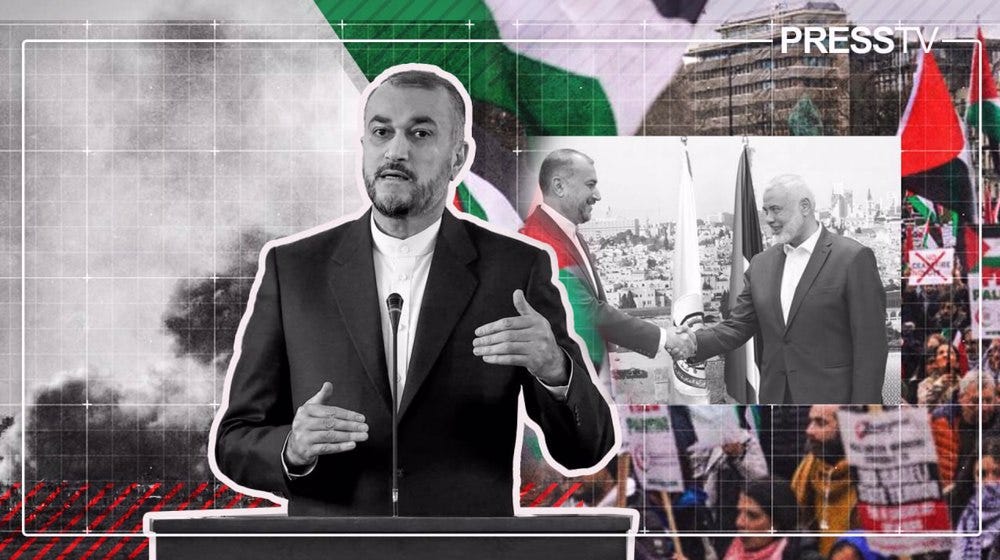Hossein Amir-Abdollahian: The Diplomat of Resistance and the Voice of Palestine on the World Stage
How Iran’s Late Foreign Minister Became a Pillar of the Axis of Resistance and a Champion for the Oppressed
Tehran, PUREWILAYAH.COM - Hossein Amir-Abdollahian, Iran’s late foreign minister, is remembered not only for his diplomatic acumen but also for his unwavering commitment to the cause of the oppressed, especially the Palestinian people. His life, marked by humility and service, left a profound impact on regional politics and the global struggle for justice.
At a recent commemorative event in Tehran, President Masoud Pezeshkian recounted a telling moment: Oman’s foreign minister was astonished by the simplicity of Amir-Abdollahian’s home, a stark contrast to the opulence often associated with high-ranking officials. This modesty was emblematic of Amir-Abdollahian’s approach to both life and diplomacy.
Amir-Abdollahian, who died in a tragic helicopter crash alongside President Ebrahim Raeisi in May 2024, was known for his deep understanding of the Arab world and his passionate advocacy for the Palestinian cause. He believed that the destiny of Palestine should be determined by its own people, free from external imposition. In meetings with Palestinian resistance leaders, he consistently argued that only Palestinians could decide their future, and he opposed any externally designed solutions.
When Operation Al-Aqsa Flood began on October 7, 2023, Amir-Abdollahian was among the first international figures to defend the right of Palestinians to resist what he called the “genocidal regime” in Tel Aviv. He remained outspoken during the subsequent bombardment and blockade of Gaza, insisting that resistance was a natural and lawful response to aggression.
Amir-Abdollahian’s diplomatic career was distinguished by his close ties to the Axis of Resistance, including groups like Hezbollah, Hamas, and Islamic Jihad. His expertise in Arab affairs and fluency in Arabic made him a key figure in Iran’s regional strategy, often working closely with the late General Qassem Soleimani. Together, they coordinated efforts to support resistance movements across the Middle East.
After the events of October 7, Amir-Abdollahian intensified his diplomatic efforts, seeking to unite Arab countries in support of a ceasefire and to strengthen the “frontline states” against Israel. He used international platforms, such as the United Nations Security Council, to condemn Israeli actions in Gaza and to call for an end to what he described as apartheid and ethnic cleansing.
Colleagues and regional leaders have described Amir-Abdollahian as the “commander of resistance diplomacy.” Adnan Mansour, Lebanon’s former foreign minister, called him not just Iran’s foreign minister but the “foreign minister of the Axis of Resistance.” His efforts were seen as crucial in halting normalization with Israel and in amplifying the voices of the oppressed on the world stage.
Within Iran, Amir-Abdollahian also played a key role in parliamentary support for the Palestinian Intifada and maintained close ties with resistance groups throughout the region. His collaboration with military and defence sectors further strengthened Iran’s support for the resistance.
Osama Hamdan of Hamas and Nasser Abu Sharif of Islamic Jihad both highlighted Amir-Abdollahian’s role in transforming diplomacy into a tool for defending the oppressed. They credited him with ensuring that the Palestinian cause remained central in international discussions, especially after Operation Al-Aqsa Flood.
Even after his death, Amir-Abdollahian’s legacy endures. He is remembered as a powerful voice for the voiceless, a champion of justice, and a central pillar of the Axis of Resistance. His approach to diplomacy—rooted in humility, principle, and unwavering support for the oppressed—continues to inspire those who seek justice for Palestine and beyond.(PW)
Source: PressTv


